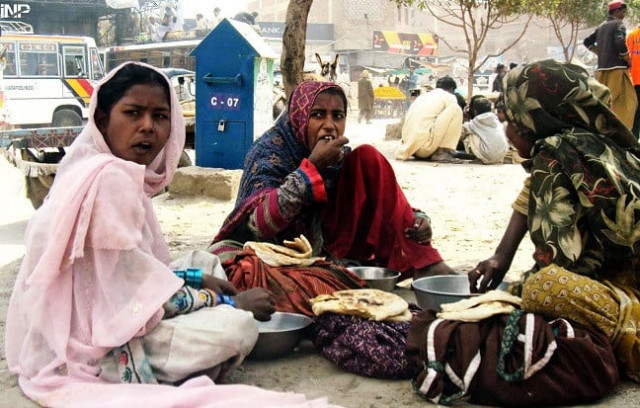Sindh govt under fire for ‘ignoring peasants’
Report says provincial administration has failed to rehabilitate thousands of families

Speakers at launching ceremony of an annual report titled The State of Peasants’ Rights in Sindh in 2021” demanded that the provincial government withdraw its appeal in the Supreme Court of Pakistan against the Sindh High Court’s verdict to implement the Sindh Tenancy Act 1950.
Speaking on the occasion, the participants criticised that the Pakistan People’s Party government of Sindh. They said it claims to be a supporter of workers’ rights and yet it is acting against peasants as the Sindh Tenancy Act was enacted to protect rights of share croppers.
Sindh Human Rights Commission Chairperson Justice (Retd) Majida Razi, , National Commission for Human Rights Member Anis Haroon, Pakistan Institute of Labour Education and Research (PILER) Executive Director Karamat Ali, International Labour Organisation representative Aijaz Ahmed, Food and Agriculture Organisation (FAO) representative Afsana, Naghma Shaikh of The Knowledge Forum and Sindh Commission on Status of Women Chairperson Nuzhat Shireen attended the report launching ceremony organised by the Hari Welfare Association at Karachi Press Club.
On the occasion, Akram Ali Khaskheli, President of HWA, spelled out the contents of the report and said that despite the fact the Sindh Assembly has passed the Sindh Women Agriculture Workers Act (SWAWA) of 2019 in 2021, it has not taken any decisions.
“No women workers’ unions were formed under the Sindh Industrial Act (SIRA) 2013. The provincial government did not notify the SIRA or SWAWA Rules, which is another instance of the laws not being implemented.”
Anis Haroon, Member of NCHR, pointed out that peasants are an integral part of the economy. She regretted that the PPP government of Sindh had launched a programme to distribute agricultural land among women peasants, buy the same was left incomplete. “Its second phase has not been launched. The women workers’ role in distribution of irrigation water is important,” she added.
Karamat Ali, ED of PILER, underlined the need to stop taking loans from the International Monetary Fund (IMF). He said in the assemblies, feudal lords are being elected and they form the governments. “You cannot find a single representatives of haris or workers in parliament,” he said. “Land reforms is the main solution.”
Justice (Retd) Majida Razvi, Chairperson of SHRC, assured that the commission would take up the issue of making rules of business of the laws. She congratulated the Hari Welfare Association on launching the report. She said the commission is taking the bonded labour issue in Sindh very seriously.
The report pointed out that during 2021, 1,465 bonded labourers in 12 of Sindh’s districts were released through court orders. Badin, Dadu, Hyderabad, Jamshoro, Matiari, Mirpurkhas, Sanghar, Sukkur, Benazirabad, Shikarpur, Tando Allahyar, Thaparkar, and Umerkot were among these districts.
Furthermore, no cases were lodged against the landlords under the Sindh Bonded Labour System (Abolition) Act (SBLSAA) of 2015. “In 2021, the GoS did not take any step to rehabilitate thousands of families living in many hari camps in Sindh,” the report stated.
It also underlined that out of 29 districts of Sindh, by 2021, only 14 district vigilance committees were formed
“The World Bank Sindh Agriculture Growth Project (SAGP) aimed to increase crop yields and increase the export of crops. The GoS had utilized less than half of the total assistance of $75 million, and even against this halved amount, the GoS was unable to show progress or promising results. This was why the World Bank did not provide more funds,” The report read.
The report questioned that when the GoS had been receiving more funds from the federal government under the new divisible pool of resources, why had it been taking loans from international institutions to further jeopardize the agriculture sector?
Published in The Express Tribune, June 25th, 2022.



















COMMENTS
Comments are moderated and generally will be posted if they are on-topic and not abusive.
For more information, please see our Comments FAQ